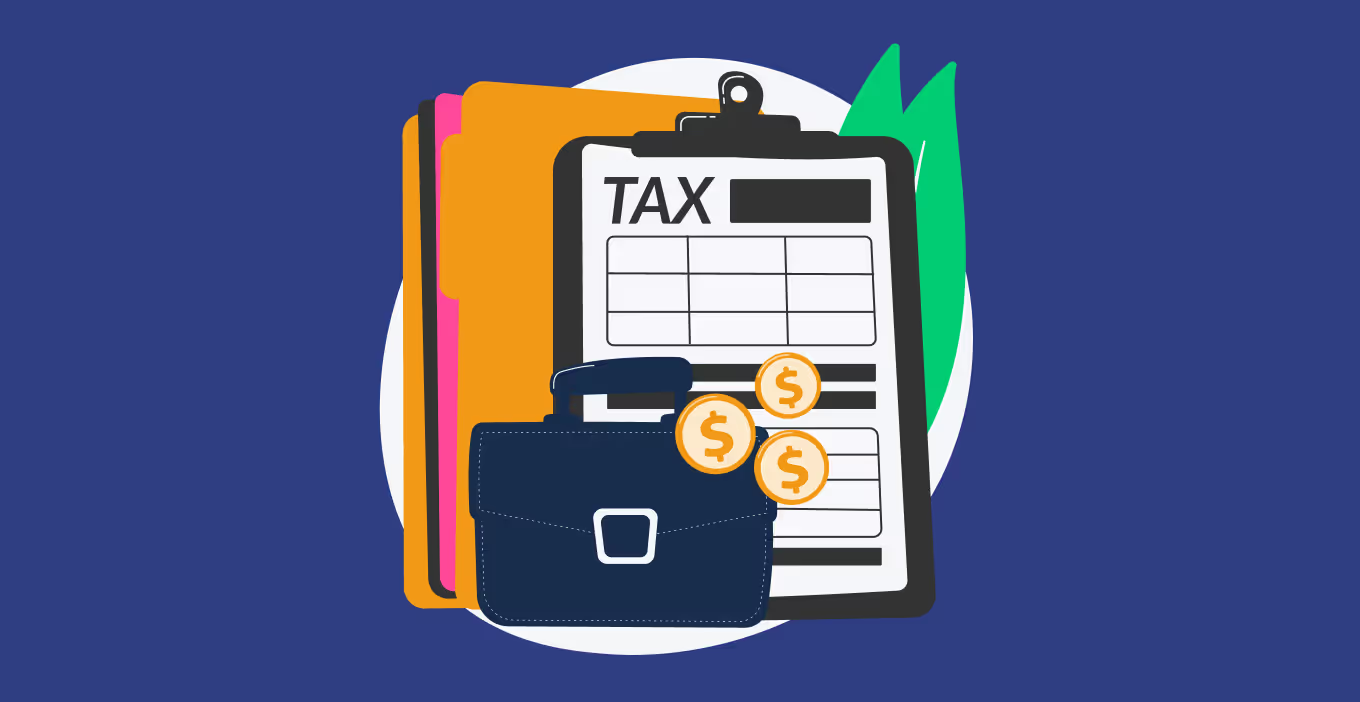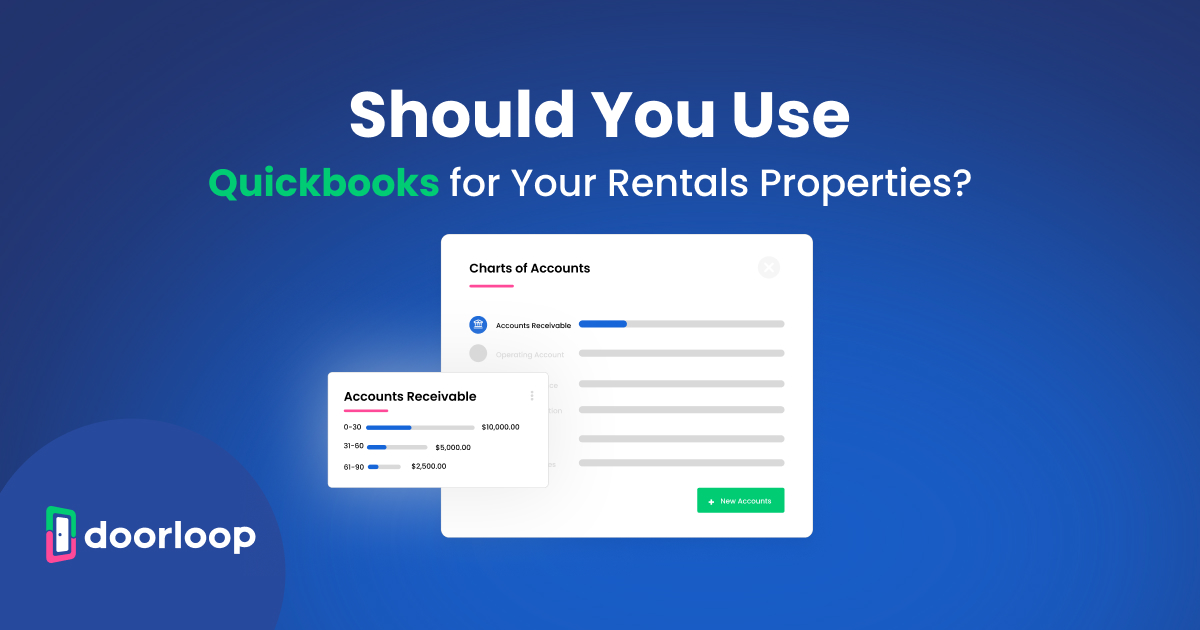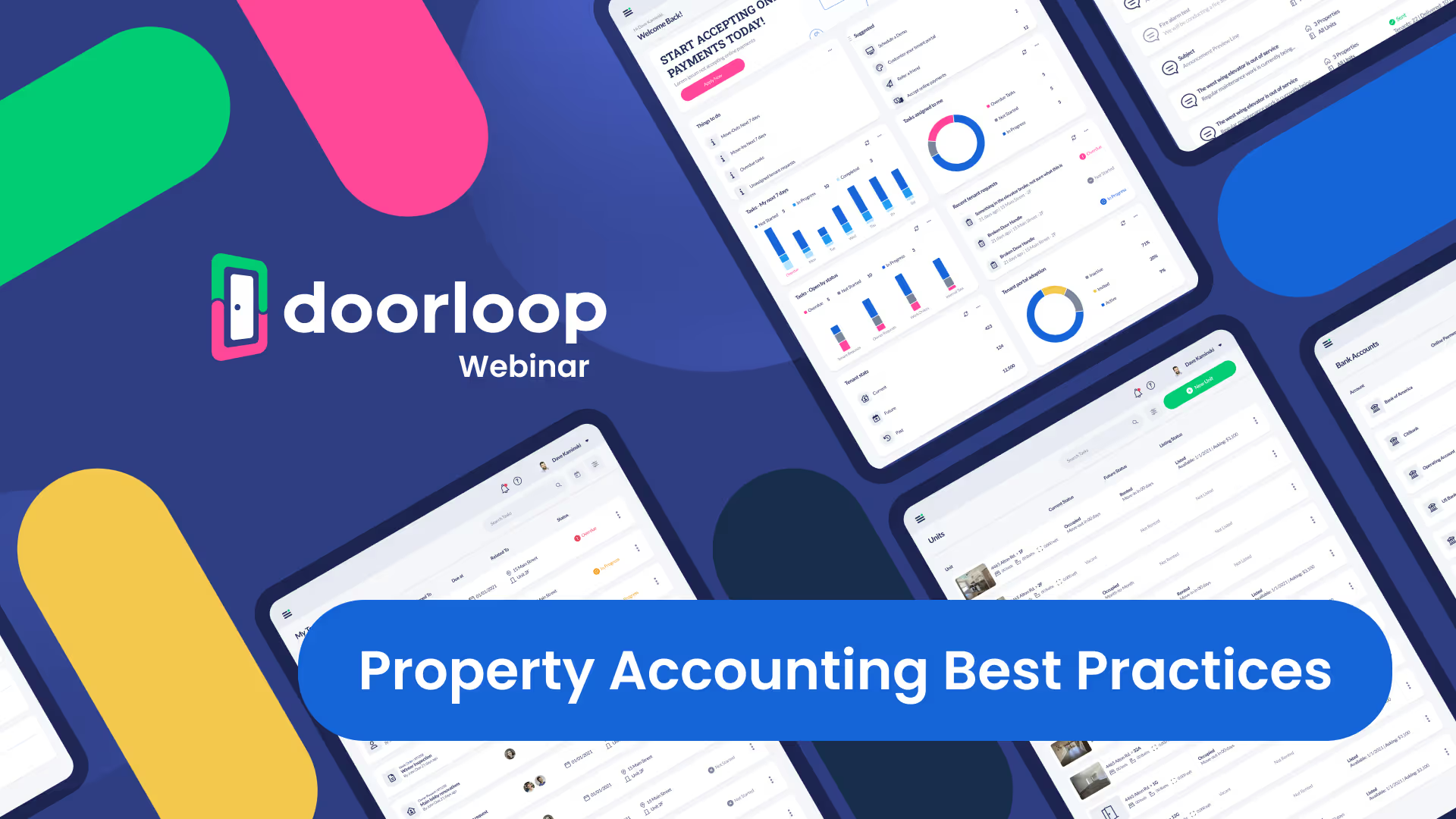When it comes to rental properties, bonus depreciation is something that is vital to consider every year.
It is a very important concept in the real estate industry that can majorly affect a rental property owner, manager, or real estate investor.
Whether you are a personal property owner or manage a rental property, depreciation is something that should definitely be included in your finances.
For a more comprehensive look at the most important accounting elements that every property manager should know, be sure to check out our blog.
Learn how DoorLoop’s property accounting software keeps landlords tax-ready
Below, we will discuss all aspects of bonus depreciation, including what it is and how it can help you save money for your residential rental property or commercial!
What is Depreciation?
Before discussing bonus depreciation, let's discuss what normal depreciation is and how it affects businesses.
Depreciation is the method where the entire cost of capital assets bought by a company are written off as business expenses. This could be used for most purchases that are made for the business, but can become more complicated when it is something that will be used for an extended period of time. For example, if you are taking a flight to meet someone for a business meeting, that can be deducted immediately the same tax year. However, if you purchase a piece of machinery for the business that will be used for a long time, there are some changes. Instead of deducting it all at once, it must be deducted a little at a time every year.
This process of deducting a certain amount every year is what is known as a depreciation expense. Every time an asset is purchased, there is a certain lifespan that is assigned to it by the IRS. Although the asset can last far longer than the lifespan given, the IRS assigns this for depreciation purposes.
When it comes to depreciation, there are actually three different methods that can be used, discussed below.
Straight-Line Depreciation on Rental Property
Straight-line depreciation is a form of depreciation where the value of a certain asset is depreciated by a constant value every year. This means that every year of the lifespan, a constant amount is deducted until it is completely deducted.
For example, if you buy a washing machine for a rental property, the lifespan is 5 years. If you bought it for $2,000, you would depreciate the value by $400 every year until it is completely deducted.
Declining Balance Depreciation
Declining balance depreciation is another form of depreciation where the value of a certain asset is depreciated every year, but by less every time. This means that every year, the amount deducted is less than it was the past year.
For example, let's say you buy the same washing machine from the last example but decide to use declining balance depreciation at a 200% reducing-balance formula. The first deduction you make would be $800. After that, your deductions would be $480, $288, $172.8, and then $260.
Note that the final payment was actually higher than the fourth payment. When this is the case, the IRS requires you to switch to straight-line depreciation the first year that there is a greater or equal deduction.
Bonus Depreciation
The last method for depreciation, and the one that we are going to discuss the most, is bonus depreciation. This method involves taking a very large depreciation the first year and taking smaller amounts in the following years.
Back to the washing machine example one more time. If you bought it for $2,000, you can deduct a first-year bonus depreciation of 50% the first year and deduct only $250 for the remaining years.
This method of depreciation could be very useful for rented real estate properties and property managers as well. However, there are some laws and regulations surrounding this method that can change how it is used.
Streamline depreciation tracking with property management software
Below, we will go more in-depth into bonus depreciation and how it could be used for rental real estate properties.
Bonus Depreciation for Rental Properties
Although this method of depreciation may sound promising for rental property owners, it must be made clear that bonus depreciation cannot be used for actual properties. The reason for this is because of the lifespans assigned by the IRS. For a rental property, there is a depreciation period of 27.5 years. This creates a problem because the maximum depreciation period for an asset to be depreciated using bonus depreciation is 20 years.
Now you may be thinking, how can I use it as a rental property owner? There are actually many assets, other than the property itself, that can be depreciated using bonus depreciation. We will be going over all the ways that rental property owners can use this method to their advantage.
Land Improvements
Although the property itself cannot be taken out as a tax deduction at once, you can depreciate land improvements. Since most land improvement jobs have a 15 year depreciation period, you are able to use bonus depreciation for these expenses.
Some examples of land improvement that allow for bonus depreciation include:
- Excavating
- Grading
- Landscaping
- Fences
- Swimming Pools
- Sprinkler Systems
Essentially, any work done on the actual land where the property is situated or permanent structures on the property (other than buildings) can be depreciated with bonus depreciation.
Personal Property
Another example of how a bonus depreciation can be used with rental properties is by deducting personal property. Since the majority of the personal property that is used within a rental property has a depreciation period of fewer than 10 years, you can use bonus depreciation with it. This would allow you to deduct the entire price of some personal property in only a few years.
Some examples of personal property that can be depreciated using bonus depreciation are:
- Appliances
- Tools
- Technology
- Furniture
- Automobiles (used for business purposes)
All of these things that are used within the rental property can be depreciated using bonus depreciation, but there are some limits. Some of these limits apply to what is considered a business deduction but some of these apply to the bonus depreciation percentage.
Below, we will discuss how a new law and some regulations have affected how bonus depreciation can be used.
How the Tax Cuts and Jobs Act affects Bonus Depreciation
In 2017, a set of changes to the U.S. tax code was passed, which made some significant changes. Most of these changes had to do with an individual's taxable income and business income. However, there were also changes to how depreciation works.
One of the most significant changes had to do with the limits that people had for claiming bonus depreciation. Before, the bonus depreciation percentage was only 50%, but after 2018, a section 179 deduction could be depreciated by 100%. This is a major change because it means that any qualified property placed in service after 2018 can now have a 100% bonus depreciation percentage.
These changes extended bonus depreciation to be used for used property that is placed in service instead of just new property.
It is also important to note that these provisions will expire in 2023 unless Congress passes them again. If the tax cuts and jobs act is not renewed, the tax year bonus depreciation percentages fluctuate. In 2023, the rate will be 80%, decreasing by 20% every year until it reaches 20% in 2026.
Also, note that there is no dollar limit on how much much can be depreciated by bonus depreciation every year. Even if the deduction causes you to have a net operating loss, you can still perform it.
Conclusion
In conclusion, depreciation is a strategy that could prove very profitable for a business that has many operating costs. It allows property managers and business owners to get something more out of their assets and achieve some tax breaks. Especially with bonus depreciation, taxpayers have the opportunity to save thousands on their taxes simply by taking the extra step to deduct all of their business expenses. The only tradeoff is that it would only be for a year, as the following deductions would be far smaller.
After reading this comprehensive guide, it should be clear that these opportunities can help you in many ways, even if you aren't a property owner. It is important that you consider yourself and your business to decide whether or not it is a good decision. You can also calculate your rental income tax with depreciation online to help inform your decision. And, if you are not sure, you should speak to an experienced tax professional to make sure you are making the best decision.
































.svg)
.svg)

